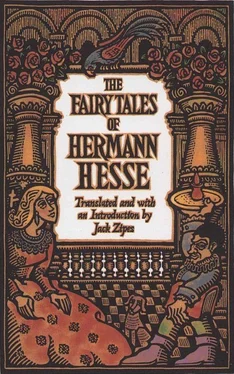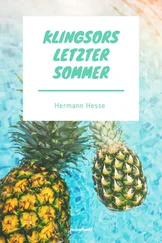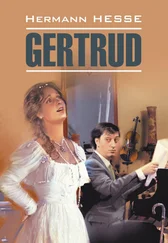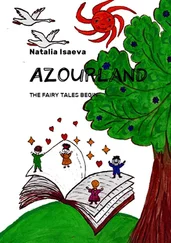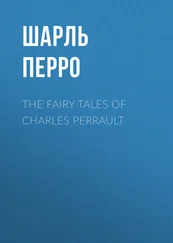Hermann Hesse - The Fairy Tales of Hermann Hesse
Здесь есть возможность читать онлайн «Hermann Hesse - The Fairy Tales of Hermann Hesse» весь текст электронной книги совершенно бесплатно (целиком полную версию без сокращений). В некоторых случаях можно слушать аудио, скачать через торрент в формате fb2 и присутствует краткое содержание. Год выпуска: 1995, ISBN: 1995, Издательство: Bantam Books, Жанр: Классическая проза, Сказка, на английском языке. Описание произведения, (предисловие) а так же отзывы посетителей доступны на портале библиотеки ЛибКат.
- Название:The Fairy Tales of Hermann Hesse
- Автор:
- Издательство:Bantam Books
- Жанр:
- Год:1995
- ISBN:9780553377767
- Рейтинг книги:5 / 5. Голосов: 1
-
Избранное:Добавить в избранное
- Отзывы:
-
Ваша оценка:
- 100
- 1
- 2
- 3
- 4
- 5
The Fairy Tales of Hermann Hesse: краткое содержание, описание и аннотация
Предлагаем к чтению аннотацию, описание, краткое содержание или предисловие (зависит от того, что написал сам автор книги «The Fairy Tales of Hermann Hesse»). Если вы не нашли необходимую информацию о книге — напишите в комментариях, мы постараемся отыскать её.
The Fairy Tales of Hermann Hesse — читать онлайн бесплатно полную книгу (весь текст) целиком
Ниже представлен текст книги, разбитый по страницам. Система сохранения места последней прочитанной страницы, позволяет с удобством читать онлайн бесплатно книгу «The Fairy Tales of Hermann Hesse», без необходимости каждый раз заново искать на чём Вы остановились. Поставьте закладку, и сможете в любой момент перейти на страницу, на которой закончили чтение.
Интервал:
Закладка:
The gondolier pushed off. Baldassare pulled the curtains tightly together and dined with his bride in the cabin. The dwarf sat calmly in the stern of the gondola and regarded the old high, dark houses of the Rio dei Barardi as the gondolier navigated his vessel until it reached the lagoon at the end of the Grand Canal at the old Palace Giustiniani, where there was still a small garden in those days. Today the beautiful Palace Barozzi stands there, as everyone knows.
Occasionally muffled laughter, the soft noise of a kiss, or part of a conversation could be heard coming from the cabin. Filippo was not curious. He looked out over the water toward the sunny Riva, then at the slender tower of San Giorgio Maggiore, then back at the lion pillar of the Piazzelta. At times he blinked at the hardworking gondolier or splashed the water with a twig that he had found in the bottom of the gondola. His face was as ugly and impassive as always and revealed nothing about his thoughts. Just then he was thinking about his drowned puppy Fino and the strangled parrot. He brooded on how close destruction always was to all creatures, animals as well as humans, and he realized that there is nothing we can predict or know for certain in this world except death. He thought about his father and his homeland and his entire life. His face turned scornful for a moment when he considered that wise people serve fools almost everywhere and that the lives of most people are similar to a bad comedy. He smiled as he looked at his rich silk clothes.
And while he sat there silently with a smile, everything happened that he had been waiting for all along. Baldassare’s voice rang out from beneath the roof of the gondola, and right after that Margherita called out, “Where did you put the wine and the cup, Filippo?”
Signore Baldassare was thirsty, and it was now time to bring him the potion with the wine. So the dwarf opened his small blue bottle, poured the liquid into a cup, then filled it with red wine. Margherita opened the curtains, and the dwarf offered the lady peaches and the bridegroom the wine. She threw him a questioning glance or two and seemed edgy.
Signore Baldassare lifted the cup to his lips, but he cast a glance at the dwarf standing in front of him and was suddenly filled with suspicion.
“Wait a second!” he cried. “Scoundrels like you are never to be trusted. Before I drink, I want you to taste the wine first.”
Filippo did not change his expression. “The wine is good,” he said politely.
But Baldassare remained suspicious. “Well, why don’t you drink it?” he asked angrily.
“Forgive me, sir,” replied the dwarf, “but I’m not accustomed to drinking wine.”
“Well, I order you to. I won’t drink one drop of this wine until you’ve had some.”
“You needn’t worry.” Filippo smiled. He bowed, took the cup from Baldassare’s hands, drank a mouthful, and returned the cup to him. Baldassare looked at him, and then he drank the rest of the wine with one gulp.
It was hot. The lagoon sparkled with a blinding glimmer. Once again the lovers sought out the shadow of the curtains, while the dwarf sat down sideways at the bottom of the gondola, moved his hand over his wide forehead, and winced as if he were in pain.
He knew that in one hour he would no longer be alive. The drink had been poison. A strange sensation overwhelmed his soul, which was now very close to the gate of death. He looked back at the city and remembered the thoughts that had just absorbed his attention. Silently he stared over the glistening surface of the water and pondered his life. It had been monotonous and meager — a wise man in the service of fools, a vapid comedy. As he sensed that his heartbeat was becoming irregular and his forehead was covered with sweat, he began to laugh bitterly.
Nobody paid attention. The gondolier stood there half asleep, and behind the curtains the beautiful Margherita was horrified and worried, for Baldassare had suddenly become sick and then cold. Soon he died in her arms, and she rushed out from the cabin with a loud cry of pain. Her dwarf was lying dead on the floor of the gondola, as if he had fallen asleep in his splendid silk clothes.
Such was Filippo’s revenge for the death of his little dog. The return of the doomed gondola with the two dead men shocked all of Venice.
Signorina Margherita went insane but still lived many years more. Sometimes she sat by the railing of her balcony and called out to each gondola or boat that passed, “Save him! Save the dog! Save little Fino!” Everyone knew her, however, and paid her no attention.
Shadow Play
(1906)

The wide facade of the castle was made of light stone, and its large windows looked out over the marshes of the Rhine and, farther away, at a bright and breezy landscape of water, reeds, and meadows, and much farther away, at the blue mountains. This ridge of mountains formed a delicate swinging arch that the path of the clouds followed, and only when there was a warm wind could one see the light castles and farmsteads shining small and white in the distant mountains. The front of the castle was reflected in the gently flowing water, vain and content like a young woman. Its ornamental shrubs let bright green branches hang down into the water, and along the wall white gondolas rocked in the stream. The serene sunny side of the castle was not inhabited. Ever since the disappearance of the Baroness, the rooms had stood empty, except for the smallest one, in which the poet Floribert lived, as he had before. The mistress of the castle had brought shame on her husband and his castle, and now nothing was left of her large and merry entourage but the white pleasure boats and the silent poet.
After the Baron had been struck by this misfortune, he moved to the rear of the castle. Here a tremendous separate tower from Roman times eclipsed the narrow courtyard. The walls were dark and wet; the windows, narrow and low. Right next to the shady courtyard was the gloomy park with large groups of old oak trees, poplars, and birch trees.
The poet lived on the sunny side of the castle and was tranquil in his solitude. He took his meals in the kitchen and often did not see the Baron for days on end.
“We live in this castle like shadows,” he said to an old friend who visited him one time and who was able to hold out for only one day in the inhospitable rooms of the dead house. In his time Floribert had written stories and gallant poems for the Baroness’s company. After the dissolution of the merry entourage, he had remained there, unquestioned, because his simple soul feared the hard ways of the world and the struggle for bread more than the loneliness of the sad castle. It had been a long time since he had written any poems. Only when the west wind came, and when he saw the far circle of the blue mountains and the flock of clouds over the stream and the yellow reeds, and when he heard the tall trees rocking themselves during the evening in the old park, did he think up long poems. These, however, had no words and could never be written down. One of them was called “The Breath of God” and concerned the warm south wind, and one had the name “Consolation of the Soul” and dealt with the colorful meadows of spring. Floribert could neither sing nor recite these poems because they were without words, but he dreamed and felt them sometimes, especially in the evenings. Otherwise, he spent the majority of his days in the village, where he played with the small light-haired children and made the young women and girls laugh by tipping his hat to them as if they were aristocratic ladies. His happiest days were those on which he encountered the Lady Agnes, the beautiful Lady Agnes, the famous Lady Agnes, with the thin face of a girl. Then he would greet her with a deep bow, and the beautiful lady would nod and laugh, look at his embarrassed eyes, and move on with a smile on her face like a ray of the sun.
Читать дальшеИнтервал:
Закладка:
Похожие книги на «The Fairy Tales of Hermann Hesse»
Представляем Вашему вниманию похожие книги на «The Fairy Tales of Hermann Hesse» списком для выбора. Мы отобрали схожую по названию и смыслу литературу в надежде предоставить читателям больше вариантов отыскать новые, интересные, ещё непрочитанные произведения.
Обсуждение, отзывы о книге «The Fairy Tales of Hermann Hesse» и просто собственные мнения читателей. Оставьте ваши комментарии, напишите, что Вы думаете о произведении, его смысле или главных героях. Укажите что конкретно понравилось, а что нет, и почему Вы так считаете.
